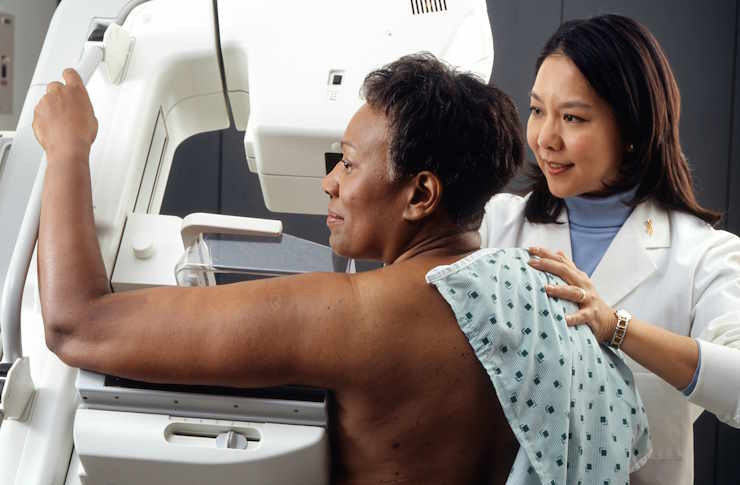Are You Due for Colon Cancer Screening? Early Signs, When to Test, Costs & Coverage
Colon cancer is a serious health concern that affects thousands of Americans each year. Regular screening is crucial for early detection and successful treatment. This article explores the importance of colon cancer screening, including when to start, common screening methods, potential costs, and insurance coverage. By understanding these key factors, you can take proactive steps to protect your health and well-being.

What are the early signs of colon cancer?
While colon cancer may not always present symptoms in its early stages, there are some warning signs to be aware of:
-
Changes in bowel habits, such as persistent diarrhea or constipation
-
Blood in the stool or rectal bleeding
-
Abdominal pain or cramping that doesn’t go away
-
Unexplained weight loss
-
Fatigue or weakness
It’s important to note that these symptoms can also be caused by other, less serious conditions. However, if you experience any of these signs, especially if they persist for more than a few weeks, it’s crucial to consult with your healthcare provider for proper evaluation.
At what age should colon cancer screening begin?
The American Cancer Society and other leading health organizations now recommend that people at average risk for colon cancer begin screening at age 45. This is a change from previous guidelines, which suggested starting at age 50. The updated recommendation is based on the increasing incidence of colon cancer in younger adults.
For individuals with certain risk factors, such as a family history of colon cancer or inflammatory bowel disease, screening may need to begin earlier. It’s essential to discuss your personal risk factors with your doctor to determine the most appropriate screening schedule for you.
What are the different colon cancer screening methods?
Several screening methods are available for colon cancer detection, each with its own benefits and considerations:
-
Colonoscopy: This is considered the gold standard for colon cancer screening. It allows doctors to examine the entire colon and remove any suspicious polyps during the procedure.
-
Fecal Immunochemical Test (FIT): A non-invasive annual test that checks for hidden blood in the stool, which can be an early sign of colon cancer.
-
Flexible Sigmoidoscopy: Similar to a colonoscopy but examines only the lower part of the colon.
-
CT Colonography (Virtual Colonoscopy): Uses CT scans to create detailed images of the colon.
-
Stool DNA Combines FIT with testing for altered DNA in the stool. This test is typically performed every three years.
Your doctor can help you decide which screening method is most appropriate based on your individual risk factors and preferences.
How do FIT and colonoscopy compare as screening options?
When considering colon cancer screening options, many people compare FIT (Fecal Immunochemical Test) and colonoscopy. Here’s a brief overview of how these two methods stack up:
FIT:
-
Non-invasive, can be done at home
-
Annual testing required
-
Detects hidden blood in stool
-
Less expensive than colonoscopy
-
May miss some polyps or cancers
Colonoscopy:
-
Invasive procedure requiring sedation
-
Typically performed every 10 years if results are normal
-
Examines entire colon and can remove polyps during the procedure
-
More expensive than FIT
-
Considered the most thorough screening method
The choice between FIT and colonoscopy often depends on personal preferences, risk factors, and doctor recommendations. Some patients may alternate between the two methods over time.
What are the typical costs and insurance coverage for colon cancer screening?
The cost of colon cancer screening can vary widely depending on the method used and your location. Here’s a general overview of costs and insurance coverage:
| Screening Method | Average Cost Without Insurance | Typical Insurance Coverage |
|---|---|---|
| Colonoscopy | $1,250 - $4,500 | Often fully covered |
| FIT | $20 - $200 | Usually covered annually |
| Flexible Sigmoidoscopy | $500 - $1,500 | Often covered every 5 years |
| CT Colonography | $600 - $1,800 | Coverage varies |
| Stool DNA Test | $500 - $600 | Coverage varies |
Prices, rates, or cost estimates mentioned in this article are based on the latest available information but may change over time. Independent research is advised before making financial decisions.
Most health insurance plans, including Medicare, cover colon cancer screening for eligible individuals. Under the Affordable Care Act, many preventive services, including colon cancer screening, are covered without copayments or deductibles. However, it’s essential to check with your insurance provider to understand your specific coverage and any potential out-of-pocket costs.
For those without insurance or with high deductibles, many healthcare providers and community health centers offer reduced-cost or sliding-scale fee options for colon cancer screening. Additionally, some national and local organizations provide free or low-cost screening programs for eligible individuals.
Colon cancer screening is a vital part of preventive healthcare for adults aged 45 and older. By understanding the early signs, screening methods, and associated costs, you can make informed decisions about your health. Regular screening can lead to early detection and more successful treatment outcomes, ultimately saving lives. Remember to consult with your healthcare provider to determine the most appropriate screening plan based on your individual risk factors and medical history.
This article is for informational purposes only and should not be considered medical advice. Please consult a qualified healthcare professional for personalized guidance and treatment.




